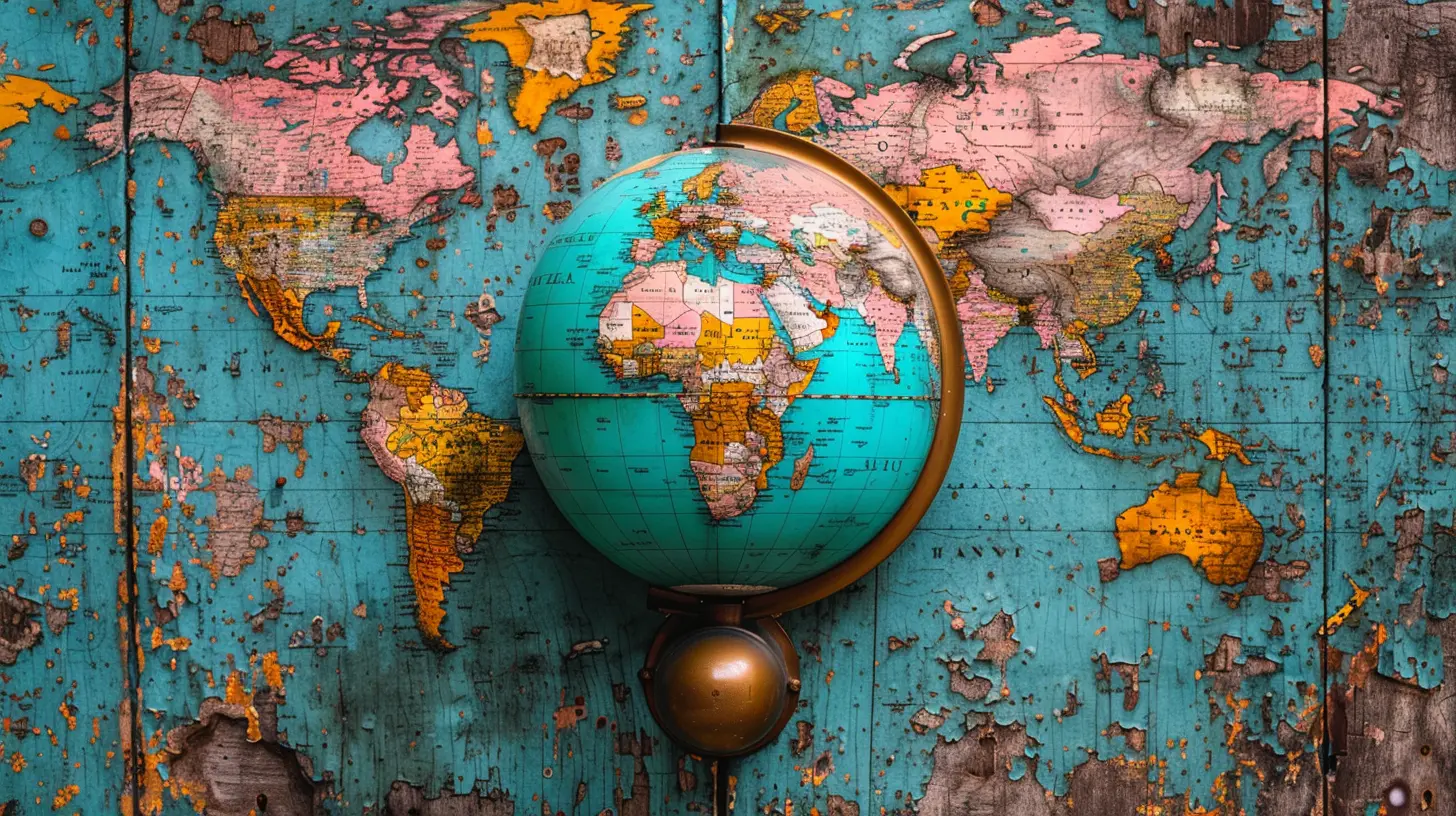How Emerging Markets Are Shaping the Future of Global Trade
8 November 2025
Let’s face it—when most of us think of global trade, we picture big-shot countries like the U.S., China, or Germany dominating the scene. They’re the Wall Street wolves of international commerce, right? But here’s the twist: emerging markets are quietly (and sometimes not-so-quietly) changing the rules of the game. Yep, those underdog economies are stepping up, flexing their muscles, and making the big players sit up and pay attention. It’s like watching a scrappy startup disrupt a tech giant—it’s exhilarating, unpredictable, and utterly fascinating.
So, grab your favorite beverage, get comfy, and let’s dive into how emerging markets are shaping the future of global trade in ways that are as unpredictable as that one friend who always suggests karaoke after a party. Spoiler alert: these markets might just be the future of everything.
What Are Emerging Markets Anyway? A Quick Refresher
First thing’s first: what exactly are emerging markets? Think of them as economies in the awkward teenage phase—not quite developed, but no longer the shiny-new kid either. They’re countries like India, Brazil, South Africa, Indonesia, and even Vietnam. These places are growing faster than my laundry pile on a busy week, yet they’re still grappling with challenges like infrastructure woes or political hiccups.But make no mistake—these markets are no amateurs. They’re like the underdog in a sports movie, training harder, smarter, and faster to punch above their weight. And it’s paying off big time.
The Power Shift: Why Emerging Markets Are Stealing the Spotlight
Picture this: decades ago, the global trade world was a two-player monopoly game between developed Western countries and a rapidly ascending China. Fast forward to today, and you’ve got a whole new cast of contenders joining the table. Emerging markets are making their presence felt with booming industries, untapped resources, and a hunger for innovation.1. Demographics: Young and Full of Energy
Let me hit you with a stat: over 85% of the world’s population lives in developing or emerging economies. That’s a lot of people. Even better, most of these places have younger populations compared to aging Western nations.Think of it like this: emerging markets have an army of energetic millennials and Gen Zers ready to power their economies. Meanwhile, developed countries are dealing with, shall we say, a more "seasoned" workforce. And guess what? A younger workforce often leads to higher productivity, more innovation, and a tech-savvy population that’s ready to embrace new trends.
2. Technology is Leveling the Playing Field
Gone are the days when emerging markets were stuck in the tech slow lane. Thanks to smartphones, internet access, and a little thing called digital transformation, these economies are leapfrogging traditional barriers.Take fintech, for example. Countries like Kenya are turning heads with platforms like M-Pesa, a mobile payment system that’s revolutionized how people access banking. It’s like they skipped the whole “brick-and-mortar bank” phase and went straight to the future.
And it’s not just fintech. From e-commerce booming in India to AI-driven startups in Nigeria, technology is giving emerging markets the tools to play in the big leagues. 
How Emerging Markets Are Reshaping Global Trade
If you still think emerging markets are just side characters in the story of global trade, it’s time to rewrite the plot. Here are a few ways these powerhouses-in-the-making are reshaping the landscape:1. Diversifying Supply Chains
Remember the pandemic’s supply chain chaos? (How could we forget, right?) It was a wake-up call for businesses relying too heavily on a handful of countries. Enter emerging markets.Companies are now looking to diversify their supply chains, and emerging economies are stepping up to fill the gaps. Vietnam, for instance, has become a major manufacturing hub, giving countries like China a run for their money. Think of it as a global version of “don’t put all your eggs in one basket.”
2. New Trade Agreements = New Opportunities
Emerging markets are shaking up trade agreements like they’re at a speed-dating event. Take the African Continental Free Trade Area (AfCFTA), for example. This ambitious agreement aims to create a single market across Africa, making it easier for countries to trade with one another.It’s like the continent found a cheat code to boost its economic potential. And with initiatives like these, emerging markets are no longer just participants in global trade—they’re becoming the architects.
3. Resource Abundance: Still a Game-Changer
A lot of emerging markets are sitting on a goldmine of natural resources, both literally and figuratively. Think oil in Nigeria, lithium in Chile, or rare earth minerals in Brazil. These resources are crucial for industries like tech, renewable energy, and electric vehicles.Basically, if you’ve got a smartphone in your pocket or a Tesla in your garage, you owe a big thank-you to emerging markets. 
Challenges? Oh, They’ve Got Plenty
Okay, let’s not over-romanticize things. Emerging markets are shaping the future, sure, but they’re also navigating some pretty gnarly challenges.1. Infrastructure Woes
Imagine trying to run a marathon with untied shoelaces—that’s what it feels like for many emerging economies trying to scale up with shaky infrastructure. Whether it’s unreliable electricity, poor roads, or limited public transport, these barriers can slow progress.2. Political Instability
Politics: the ultimate plot twist. Emerging markets often deal with unpredictable governments, policy changes, or even outright corruption. And let’s be real, you can’t exactly attract foreign investors when your politics are messier than a soap opera.3. Economic Inequality
Here’s the rub—yes, these markets are growing, but not everyone is sharing in the spoils. Economic inequality is a major hurdle, with wealth often concentrated in the hands of a few while the majority struggles to get by. It’s like having a booming party where only one table gets the champagne.The Ripple Effect on Global Trade
So, what does all of this mean for global trade? In short, buckle up—it’s going to be a wild ride. Emerging markets are no longer on the sidelines; they’re shaping trends, influencing policies, and driving innovation.Take sustainability, for example. Many emerging economies are adopting green energy initiatives faster than their developed counterparts. Why? Because they don’t have the baggage of legacy systems to rip out. It’s like moving into a new house and installing solar panels from day one, rather than retrofitting an old one.
What This Means for You (Yes, You!)
You might be wondering, “Okay, cool story, but how does this affect me?” Well, whether you’re a business owner, an investor, or just someone trying to understand where your next gadget comes from, emerging markets matter. They’re driving the future of industries, shaping trade policies, and influencing the products you use every day.So, next time you hear someone talking about Vietnam’s tech scene or Africa’s renewable energy projects, don’t brush it off. These markets aren’t the future—they’re the now.
Wrapping Up: The Underdogs Are Winning
If there’s one thing to take away from all this, it’s that emerging markets are doing more than shaping the future of global trade—they’re flipping the script entirely. With young populations, tech innovation, and an eagerness to break past old barriers, these economies are proving that the underdogs can, in fact, win.Sure, the road ahead is bumpy, filled with potholes like political instability and infrastructure challenges. But if there’s one thing we love, it’s a good comeback story. And emerging markets? They’re writing one of the best comeback stories of our time.
all images in this post were generated using AI tools
Category:
Economic TrendsAuthor:

Rosa Gilbert
Discussion
rate this article
1 comments
Arwenia Rocha
Great insights! Emerging markets are indeed pivotal in transforming global trade dynamics. Excited to see how this evolves!
November 11, 2025 at 3:25 AM

Rosa Gilbert
Thank you! I'm glad you found the insights valuable. It's certainly an exciting time for emerging markets and their impact on global trade!


